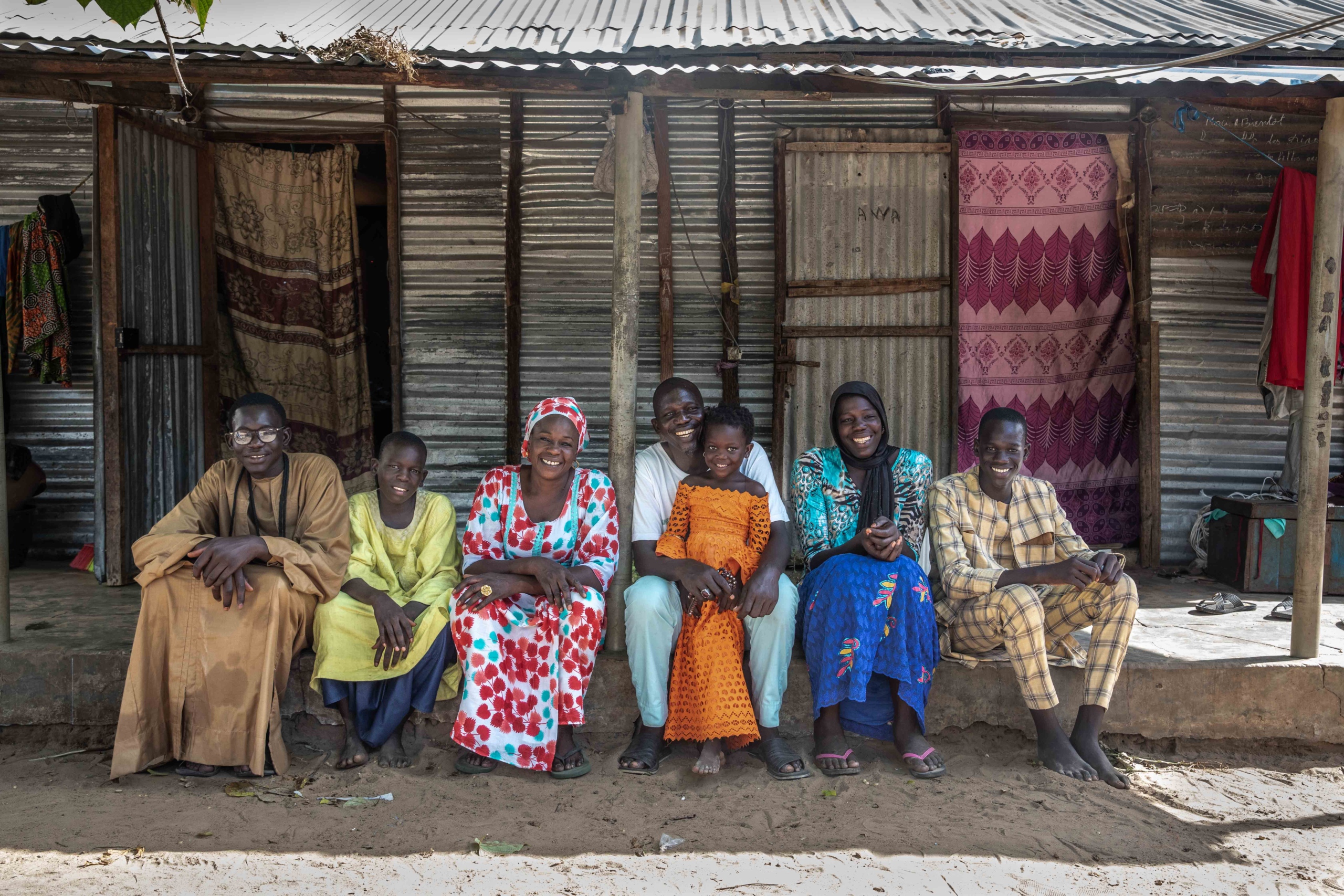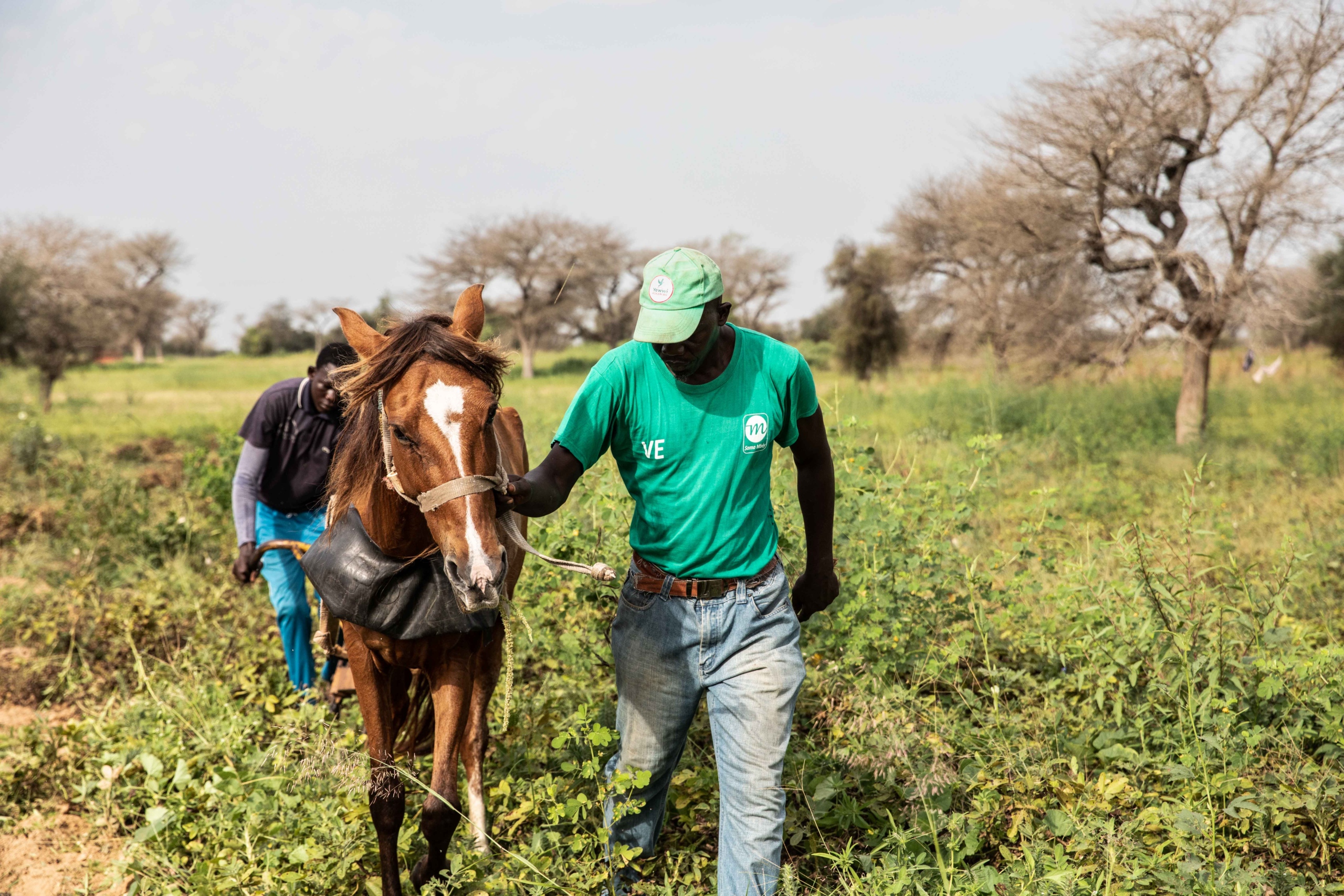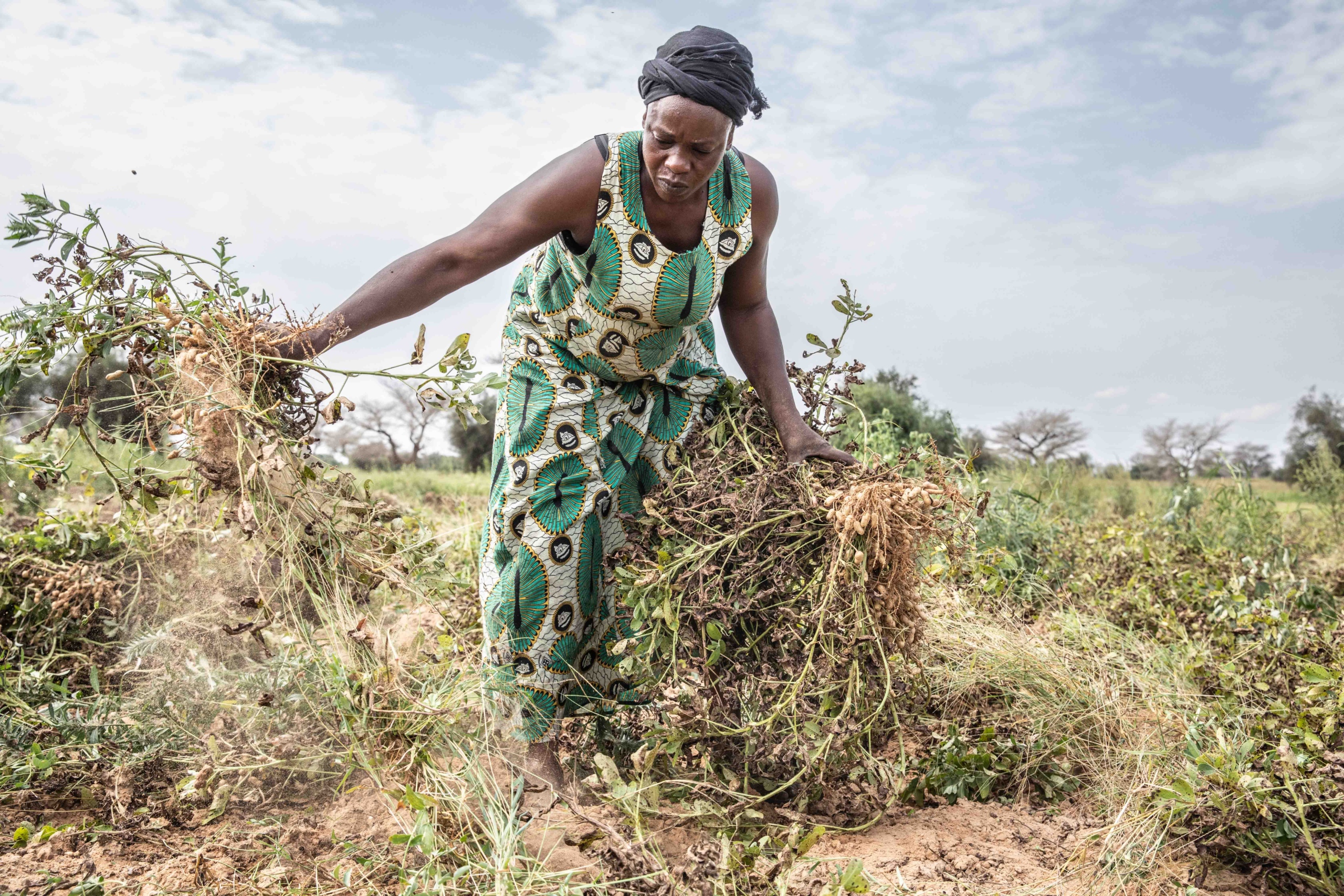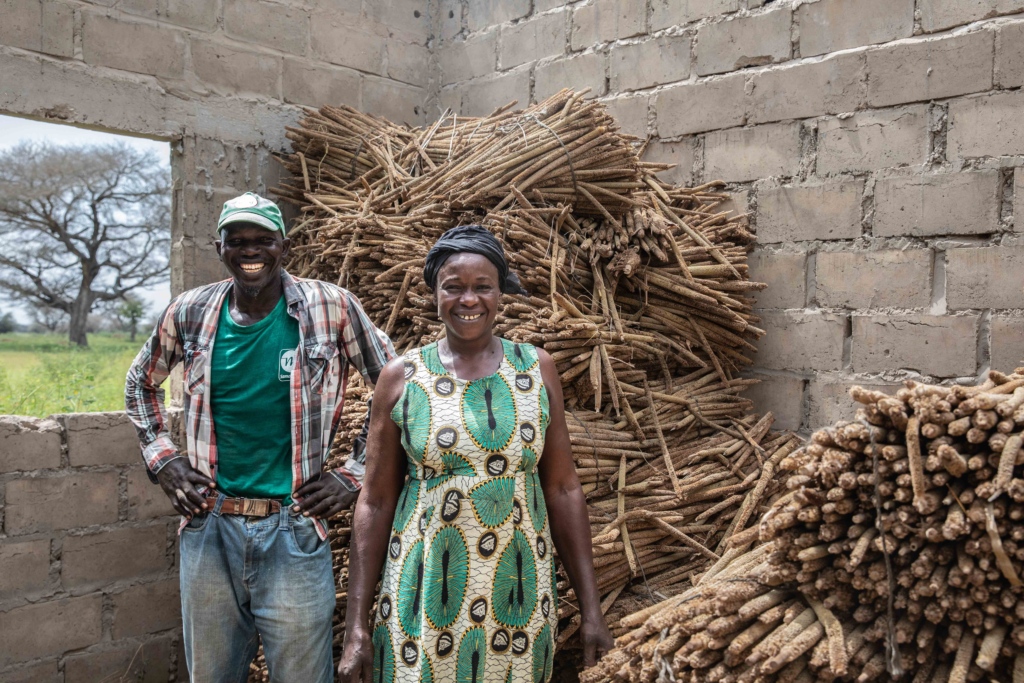How myAgro’s Layaway Model Transformed a Senegalese Farming Family’s Livelihood
myAgro’s approach to farming focuses on long-term sustainability and resilience, that can support farmers to withstand economic shocks and climate-related challenges.

Mamadu and Khady, farmers from Lambaye village in Senegal, have always relied on farming as their main source of livelihood to support their large family of seven children. However, in recent years, they have faced significant challenges due to the impact of climate change on their crops. “My family has experienced hardships due to low yields,” said Mamadu. “The rain comes late and it stops early.”
Unable to sustain their lifestyle, the family began to explore alternative options. Their eldest son, Ibrahima, left his home in the village and migrated to the capital city of Dakar in search of work. Around the same time, Mamadu heard a farmer from a neighboring village speak of his successful harvest, which he attributed to the quality inputs and training he received from myAgro. Mamadu then contacted a myAgro team member and invested in his first package.

Before joining myAgro, Mamadu’s family used to buy their agricultural inputs from a seed distribution organization. However, the adverse effects of climate change resulted in reduced farm production for the family. Consequently, they had to purchase additional food ingredients that they would have previously grown. The need to buy food made it increasingly difficult for them to afford the inputs in a lump sum. Mamadu explained, “We had to pay for the inputs simultaneously.”
With myAgro’s layaway platform, Mamadu and his family have been able to invest in their land routinely. “The little-by-little payment method is really phenomenal. People here don’t have a lot of money, so the way myAgro operates really helps,” explains Mamadu.
By growing a variety of crops and farming livestock, Mamadu and his family have built resilience against climate shocks. “With farming, you don’t always get the yield that you want. Sometimes you get more of one crop and less of the other,” said Mamadu. 2022 season, the family harvested 14 bags of groundnuts, 15 bags of hibiscus, and 500kg of millet. Additionally, they have produced enough animal feed from their crop production to feed their animals—6 sheep, 1 goat, 15 chickens, and 4 horses. Mamadu was able to invest in a mare 2 years ago with the money the family made from 2 tons of millet harvested with myAgro that year. Now the family proudly owns 4 horses.

Mamadu and Khady have found peace knowing that they can once again care for their children’s basic needs (food, clothing, and shelter). Moreover, they can comfortably provide for their children’s education. “If I have school fees, hospital bills, or electricity bills I need to pay, I have something to lean on. I sell some of my stock, and I use the money for the bills,” Mamadu shared.
Mamadu now also works as a myAgro village entrepreneur (VE), selling myAgro inputs to other farmers in his village. When asked about his job as a VE, he said, “Keep in mind that I have been a farmer for a long time! As a VE, I let people know that I am a farmer first before explaining to them the benefits of working with myAgro.”
Mamadu’s son Ibrahima has decided to remain in Dakar, where he now works as a driver and visits his family during the harvest season and holidays. “Ibrahima, my eldest son, always helps in the field because my other children are at school during harvest season. Ibrahima always comes during harvest,” said his father lovingly.
“I do see myself farming in the future,” said Ibrahima. “Farming is good because it can help the country feed itself by growing and selling”.

By promoting sustainable farming practices, myAgro not only supports smallholder farmers to increase their yields and income, but also contributes to economic development. The increased productivity and income levels of farmers can lead to greater economic activity within their local communities.
myAgro is helping to build a more resilient agricultural sector that can contribute to economic growth and development over the long term. Join us in our mission to reach 1 million farmers by 2026.